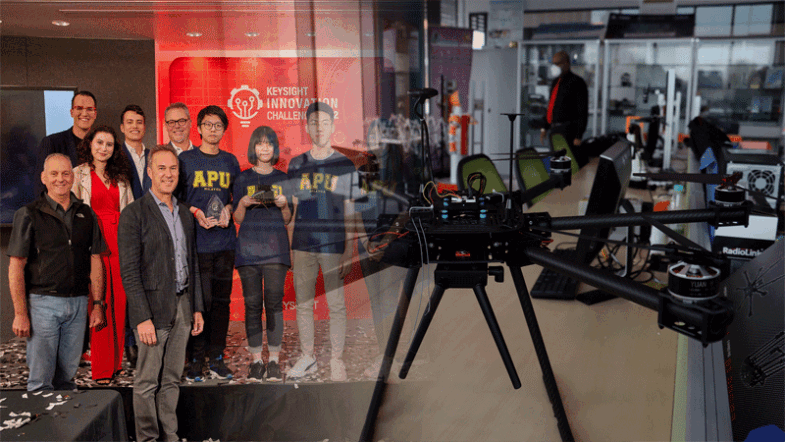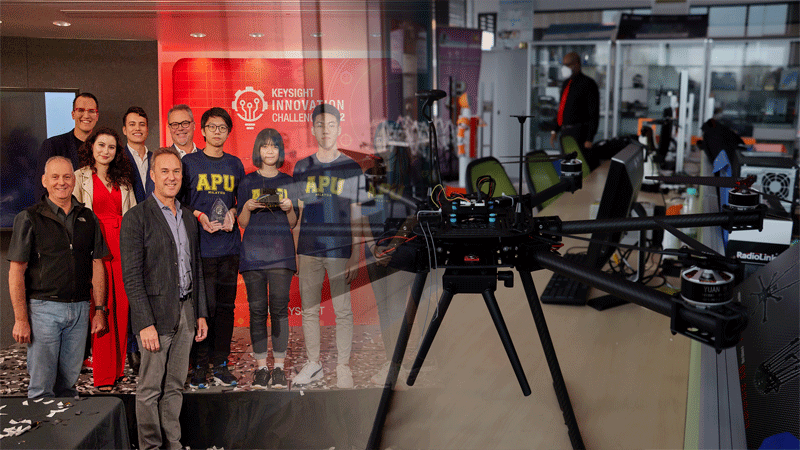Computer science undergraduates specialising in data analytics were supervised by the varsity’s School of Computing lecturer Mafas Raheem.

MALAYSIA Techlympics 2022, the country’s largest initiative to develop young talent in science, technology, and innovation, saw Team Three Musketeers from Asia Pacific University of Technology & Innovation (APU) win the Data Science Challenge.
Computer science undergraduates specialising in data analytics, Chan See Mun and Lai Mei Sim were supervised by the varsity’s School of Computing lecturer Mafas Raheem.
The team embarked on the Data Science Challenge by taking up a data exploration task and studying a complex dataset to understand the relationships between the variables.
The 22-year-olds outmanoeuvred teams from Universiti Teknologi Malaysia and Monash University Malaysia with “Path to Net Zero”, a solution formulated after a 24-hour datathon that aimed to reduce global greenhouse gas (GHG) emissions using the latest technology. Organised by the Science, Technology and Innovation Ministry (Mosti), the competition saw Team Three Musketeers taking home a cash prize of RM7,000.
The dataset which was captured from the online platforms of collection of key metrics – Our World in Data and Climate Watch Data – contains the societal information of each nation from 1990 to 2019, said Mafas in a recent press release.
The dataset, he explained, set a narration to address the importance of modern industry’s contribution to a country’s economy and filling the needs of people’s energy consumption.
“However, as modern industry causes a lot of GHG emissions, optimal solutions should be proposed for sustainable economic development,” Mafas said, adding that Chan and Lai then came up with an interactive and comprehensive dashboard which allows a full understanding of the carbon emission situation.
They identified obstacles to achieving the net zero emission target and proposed target solutions for the identified problems. “We emphasised the ways to reduce GHG emissions through afforestation, reforestation, negative emission technologies, and hydrogen energy,” said Chan, who is in her second year of studies.
The Techlympics 2022 finals, held on Nov 26 and 27 in Bukit Jalil last year, saw 10 teams competing intensely. According to Three Musketeers, the Data Science Challenge was fierce since there were many undergraduate teams from public and private universities that provided impressive solutions.Lai, a final year student, said the key to the team’s win was good synergy, and experiences and skillsets developed in the course of their studies.
“We spent the first two hours exploring and brainstorming to determine the direction of the project before dividing the work to execute it. With the uncertainty of whether our solution met the requirements of the competition, the next 22 hours were us bouncing between joy, struggle, diligence and self-doubt. During the most exhausting times, it wasn’t about the prize anymore; rather, it was the conviction to complete the project that kept us going,” she shared.
Mafas said the girls relied on their experience participating in other competitions, especially the Asean Data Science Explorers (ASEANDSE) 2022, in which they emerged among the top 15 teams.
“Our students always reflect on the many competitions they have taken part in to improve themselves. For this competition, they tried to use familiar tools such as Microsoft Power BI and Python-Pandas to develop solutions,” he said.
In preparation, many discussions were conducted, with Mafas guiding Chan and Lai on the use of PowerBI to deliver more meaningful solutions.
“Initially, we were prepared to build a machine learning model on the Power BI platform, but later decided to go with data storytelling using an interactive dashboard due to the type of dataset given in the competition,” the girls explained.
Their strategy proved rewarding as the team defeated strong competitors and went all the way to the top. “It was a remarkable achievement. Our students once again proved that they are capable of facing real-world data science needs,” said Mafas.
Big Earth data analytics from satellite observations, Internet-of-things, model simulations, and other sources have become critical in today’s day and age, said Three Musketeers.
While gearing up for the competition, the team realised that applying the right technique to solve a contemporary environmental problem is vital to offering high-quality information to decision-makers.
Data analytics provides a comprehensive understanding of the current situation, forecasting specific relevant factors which could help data analysts understand future consequences.
“Data analysis allows professionals to get the full picture, thus enabling them to translate knowledge into action. It is important in impact measurement to assess the effectiveness of a particular policy or technology. Hidden key insights and underlying indicators affecting specific world issues can be identified using data analytics.”
“This allows for solutions to be developed so that we can effectively address the problems identified,” the team said.
Originally published at The Star
